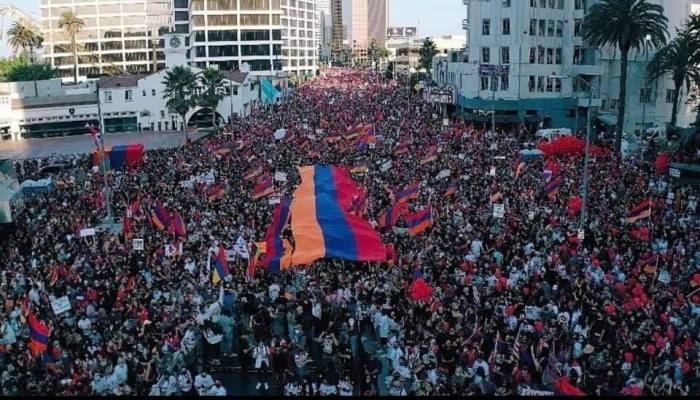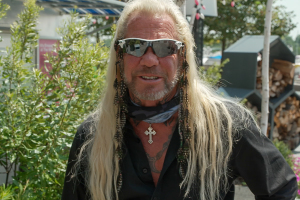Human rights groups demand humanitarian airlift for Christian region Nagorno-Karabakh

In a letter to U.S. President Joe Biden, John Eibner, the president of Christian Solidarity International, and the U.K.’s Baroness Caroline Cox have urged the United States to take action to end Azerbaijan's blockade of Nagorno-Karabakh, home to 120,000 Armenian Christians.
The letter calls for a resolution at the United Nations Security Council that would authorize a humanitarian airlift into the region if Azerbaijan does not comply.
“You are the first American president to recognize the Armenian Genocide,” Eibner and Baroness Cox of Queensbury, a member of the U.K.’s House of Lords, wrote to Biden Tuesday. “We urge you not to allow another Armenian Genocide to occur on your watch.”
On Dec. 12, Azerbaijani activists and soldiers closed the Lachin corridor, the only road connecting the Armenian-majority region of Nagorno-Karabakh to the Republic of Armenia, and thus to the outside world, CSI said, adding that Azerbaijan had also cut off electricity, gas and internet access to the region.
As a result, food, fuel and essential medicines are running out in Nagorno-Karabakh. Moreover, with electricity and fuel for heating increasingly scarce, many people, especially the poor and the elderly, are at risk of dying from cold in the freezing winter temperatures, added CSI, a Christian human rights organization that says it promotes religious liberty and human dignity.
It's all part of an “ongoing” genocide, according to the group.
“A process of genocide has been underway since the Ottoman massacres of Armenians in the late 19th century,” Eibner told The Christian Post.
“What is generally called the Armenian Genocide (1915-'18) was, in fact, a broader genocide of Christians, including the Syriacs/Assyrians/Aramaeans. It was the high point of a process that continues in waves until the present day,” the CSI president said.
He added, “It continued in the Caucasus after the end of the First World War and was only suspended by the imposition of Soviet rule. With the collapse of the Soviet Union, the process resumed in the first Karabakh war, again two years ago in the second Karabakh war and now in the strangulation of Karabakh by means of blockade.”
The blockade shows Azerbaijan’s intention “to conquer Nagorno Karabakh by, in the words of the Genocide Convention, ‘deliberately inflicting conditions of life calculated to bring about the end of a national, ethnical, racial or religious group in whole or in part,’” Eibner and Cox wrote in the letter.
As the blockade began, Armenian Prime Minister Nikol Pashinyan said, as quoted by CSI, “Today we see consistent actions which make more and more real the concern that Azerbaijan is indeed planning genocide in Nagorno-Karabakh.”
Issuing a genocide warning for Nagorno Karabakh with other human rights organizations last month, CSI said the actions of Azerbaijan toward the Armenians in the region aligned with a historical pattern of ethnic and religious cleansing by Azerbaijan, Turkey and the Ottoman Empire. Additionally, the warning read, all 14 indicators of potential atrocity crimes identified by the U.N. Secretary-General’s Office on Genocide Prevention were present.
The blockade follows an unprovoked attack by Azerbaijan on the Republic of Armenia last September, and another 44-day war of aggression by Azerbaijan and its ally Turkey against the Armenians of Nagorno-Karabakh in September-November 2020, CSI said in a statement to The Christian Post. In both wars, Azerbaijani forces committed well-documented war crimes against Armenians, and the 2020 war resulted in the ethnic cleansing of tens of thousands of Armenians from their homes, it added.
Azerbaijan’s 1989-1994 ethnic cleansing campaign against Armenians also began with a blockade of the region.
“Failure to act will have world-historical consequences,” Cox and Eibner warned in their letter. “If Azerbaijan succeeds in conquering Nagorno-Karabakh, ethnic cleansing on a mass scale will take place, a priceless part of humanity’s common cultural heritage will be destroyed, and dictatorships everywhere will see that aggression is rewarded in today’s international order.”
The Nagorno-Karabakh conflict is a long-standing dispute between Armenia and Azerbaijan over the Nagorno-Karabakh region, which is recognized internationally as part of Muslim-majority Azerbaijan even though it has a majority Armenian population and is controlled by ethnic Armenians.
The conflict has its roots in the early 20th century when the region, which has a majority Armenian population, was part of the Russian Empire and later, the Soviet Union.
In the 1920s, Soviet leader Joseph Stalin established the Nagorno-Karabakh Autonomous Oblast within Soviet Azerbaijan. However, as the Soviet Union began to collapse in the late 1980s, ethnic Armenians in Nagorno-Karabakh voted to secede from Azerbaijan and join Armenia. This led to a war between the two countries that lasted from 1988 to 1994, resulting in the deaths of tens of thousands of people and the displacement of over 1 million.
A ceasefire was signed in 1994 but sporadic violence continued in the region.
In 2016, a four-day war broke out between Armenia and Azerbaijan, resulting in hundreds of deaths. In September 2020, the fighting broke out again, escalated rapidly and resulted in a large-scale military operation by Azerbaijan, with the support of Turkey, to retake the regions of Nagorno-Karabakh and the surrounding areas under Armenian control.
A ceasefire was signed again in November 2020, but tensions remain high, with both sides accusing each other of ceasefire violations, and the situation in Nagorno-Karabakh remaining tense.
In an op-ed published by the Foreign Policy magazine last month, Armenian journalist Lara Setrakian explained that the Armenians residing in Karabakh view the prospect of complete integration into Azerbaijan without any guarantees for their security as a potential precursor to ethnic cleansing, whether through violent means or by exerting pressure for them to leave their homes.
Azerbaijan's promise to treat the Armenians of Nagorno-Karabakh as equals to its own citizens provides little assurance given Azerbaijan's history of human rights violations, wrote Setrakian, who's also the president of the Applied Policy Research Institute based in Yerevan.
Furthermore, she added, recent violent acts committed by Azerbaijani soldiers, such as the execution of Armenian prisoners of war, sexual abuse of female soldiers and the mutilation and beheading of Armenian civilians have only heightened the fear and concern of the Armenian community.
Biden became the first president since former President Ronald Reagan to recognize the Armenian genocide on its 106th anniversary in April 2021. Some historians see the Armenian genocide as a precursor of genocides the world witnessed later, including the Holocaust.
In October 2020, an estimated 100,000 people marched through the streets of Los Angeles, California, to call for an end to the fighting between Azerbaijan and Armenia.
“We stand with our brothers and sisters in Armenia & Artsakh, & the diaspora in L.A.,” Eric Garcetti, who was Los Angeles Mayor at the time, tweeted. “We need our national leadership to step up & help bring peace to the region. Turkey must disengage.”




























